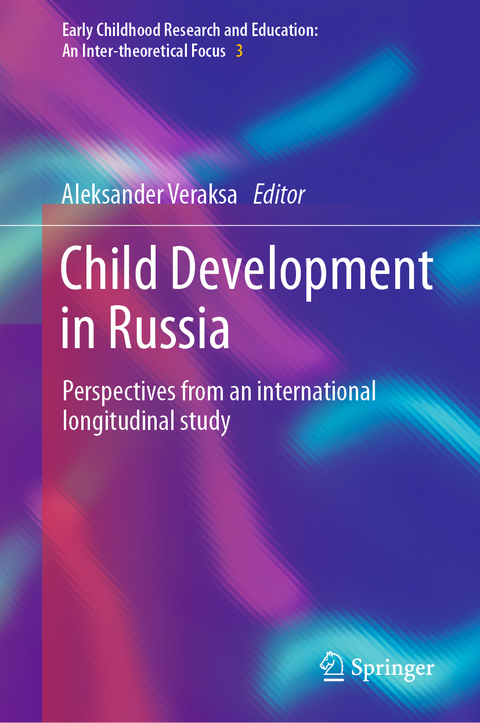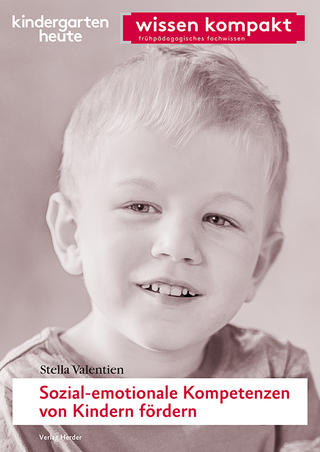
Child Development in Russia
Springer International Publishing (Verlag)
978-3-031-05523-2 (ISBN)
This book presents unique results of complex studies from the all-Russian longitudinal study "Grow with Russia". In the framework of the cultural-historical concept, it focuses on the social situation of development, which is organized by adults, and its influence on cognitive and emotional development of children. It examines the role of the traditional play in children's development in modern conditions.
The book explores the changes in social situation of development due to the digitalization of the world and its impact on child development, child groups and play development. The book searches for cognitive cultural tools as means of concept acquisition by preschool children in different domains as well as key factors that influence effectiveness of different cultural tools usage. This book provides international perspectives, making results from the study applicable to different cultural contexts.
Professor Aleksander Veraksa is a Head of the Department of the Psychology of Education and Pedagogy of the Lomonosov Moscow State University. His field of research is child development from the cultural-historical approach. He is especially interested in interrelations between quality of education and child development in a digital society. Currently, he is a Head of the preschool section of the All-Russian longitudinal project, which embraces more than 20.000 children from 14 regions of Russia. He was awarded prizes for his research from Government of Russian, President of the Russian Federation, Russian Academy of Education.
1. Preschool education and child development in Russia.- 2 . Quality of preschool education and child emotional development.- 3 . Executive functioning and mathematical skills development: from preschool to school.- 4. Language development and executive functions in children 5-8 years: longitudinal study.- 5. Developmental outcomes of bilingual and monolingual preschool children.- 6. Play and possibilities of child cognitive development in preschool age.- 7. Physical fitness and child development: interrelations in preschool age.- 8. Gadgets usage and child development: digital tools or digital environment?.- 9. The impact of the preschool environment on children's expression and development of dialectical thinking.- 10. Concept acquisition through symbolic tools: from Vygotsky to Brune.- 11. Social competence and child development in preschool age.- 12. Parent-child relationships input in child development.- Conclusion: Changes in life of children - perspectives for education.
| Erscheinungsdatum | 04.09.2022 |
|---|---|
| Reihe/Serie | Early Childhood Research and Education: An Inter-theoretical Focus |
| Zusatzinfo | XII, 265 p. 51 illus., 18 illus. in color. |
| Verlagsort | Cham |
| Sprache | englisch |
| Maße | 155 x 235 mm |
| Gewicht | 577 g |
| Themenwelt | Geisteswissenschaften ► Psychologie ► Pädagogische Psychologie |
| Medizin / Pharmazie ► Medizinische Fachgebiete ► Psychiatrie / Psychotherapie | |
| Sozialwissenschaften ► Pädagogik ► Vorschulpädagogik | |
| Schlagworte | child cognitive development • Child Cognitive Development in Russia • Children and Screen Exposure • Children Usage of Digital Screen • Digital Screen and Cognitive and Emotional Development • Emotional development • Emotional Development in Russia • Executive Functions Development Preschool in Russia • Language Development Preschool in Russia • Longitudinal Study in Russia • Mathematics Development Preschool in Russia • Play Development • Quality of Education in Russia • Screen Exposure and Cognitive and Emotional Development • Vygotsky Cultural-historical Approach in Longitudinal study |
| ISBN-10 | 3-031-05523-3 / 3031055233 |
| ISBN-13 | 978-3-031-05523-2 / 9783031055232 |
| Zustand | Neuware |
| Informationen gemäß Produktsicherheitsverordnung (GPSR) | |
| Haben Sie eine Frage zum Produkt? |
aus dem Bereich


